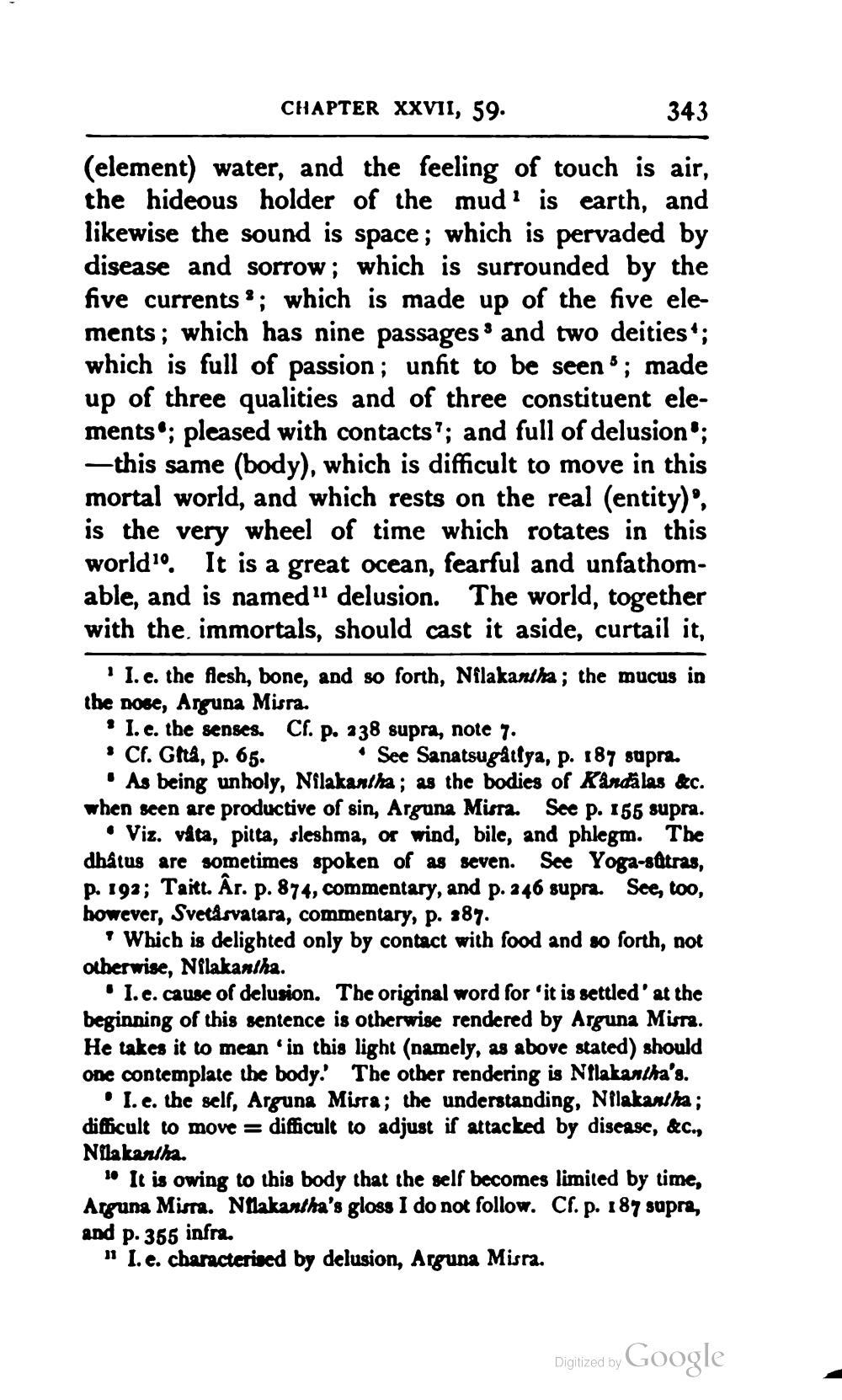________________
CHAPTER XXVII, 59.
343
(element) water, and the feeling of touch is air, the hideous holder of the mud' is earth, and likewise the sound is space; which is pervaded by disease and sorrow; which is surrounded by the five currents *; which is made up of the five elements; which has nine passages : and two deities; which is full of passion; unfit to be seen"; made up of three qualities and of three constituent elements"; pleased with contacts?; and full of delusion.;
—this same (body), which is difficult to move in this mortal world, and which rests on the real (entity)”, is the very wheel of time which rotates in this world. It is a great ocean, fearful and unfathomable, and is named" delusion. The world, together with the immortals, should cast it aside, curtail it,
' I. c. the flesh, bone, and so forth, Nilakantha; the mucus in the nose, Arguna Misra.
• I. c. the senses. Cl. p. 238 supra, note 7. • Cf. Gha, p. 65. • See Sanatsugåtfya, p. 187 supra.
• As being unholy, Nilakantha; as the bodies of Kandalas &c. when seen are productive of sin, Arguna Misra. See p. 156 supra.
• Viz. vita, pitta, sleshma, or wind, bile, and phlegm. The dhatus are sometimes spoken of as seven. See Yoga-stras, p. 192; Taitt. Âr. p. 874, commentary, and p. 346 supra. See, too, however, Svetåsvatara, commentary, p. 387.
" Which is delighted only by contact with food and so forth, not Ocherwise, Nilakantha.
• I.e. cause of delusion. The original word for 'it is settled at the beginning of this sentence is otherwise rendered by Arguna Mista. He takes it to mean in this light (namely, as above stated) should Onc contemplate the body. The other rendering is Nflakantha's.
.l.e. the self, Arguna Mista; the understanding, Nilakantha; difficult to move = difficult to adjust if attacked by discase, &c., Nilakantha.
10 It is owing to this body that the self becomes limited by time, Arguna Mista. Ntakantha's gloss I do not follow. Cl. p. 187 supra, and p. 355 infra.
" I.e. characterised by delusion, Arguna Misra.
Digitized by Google




